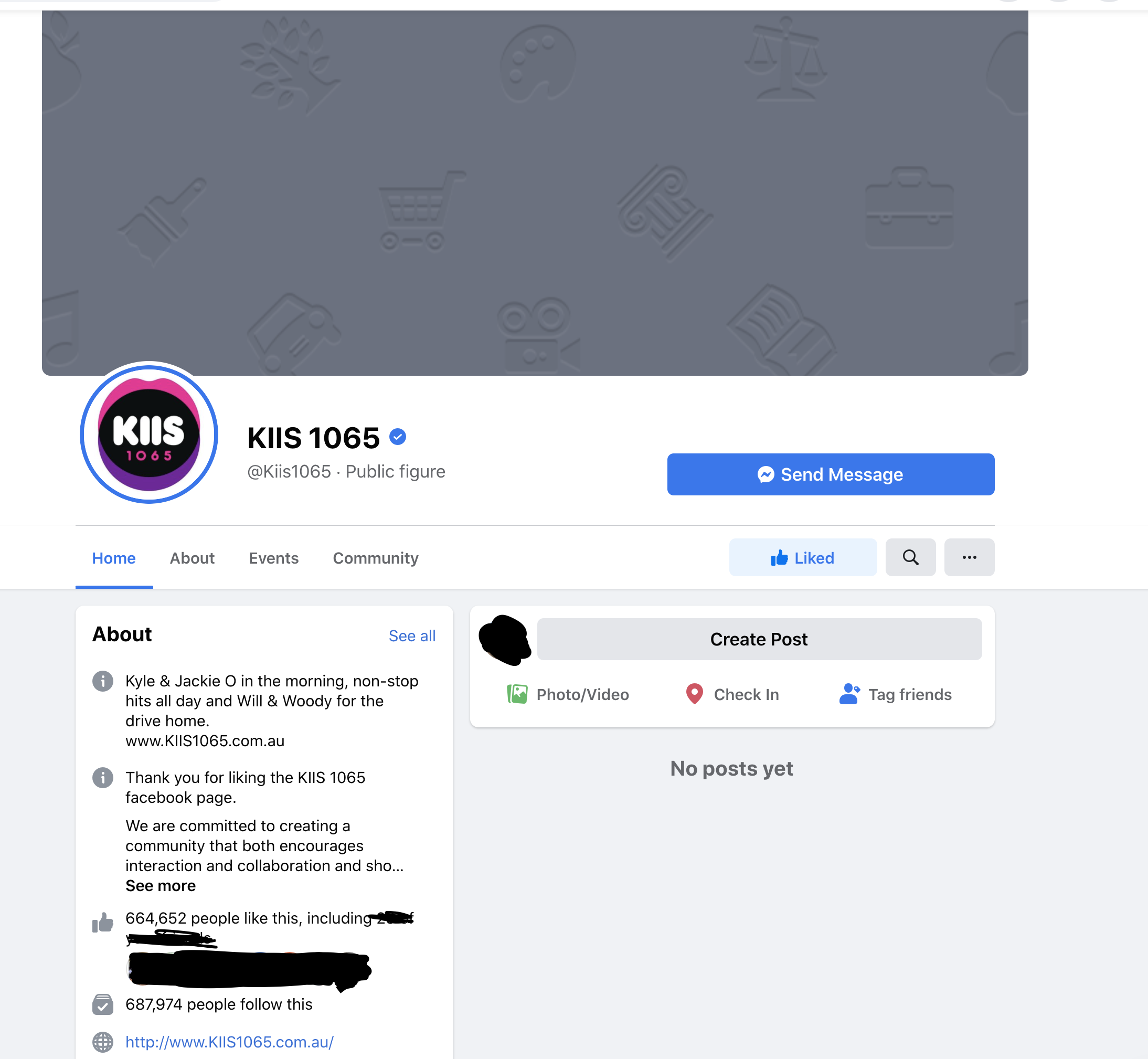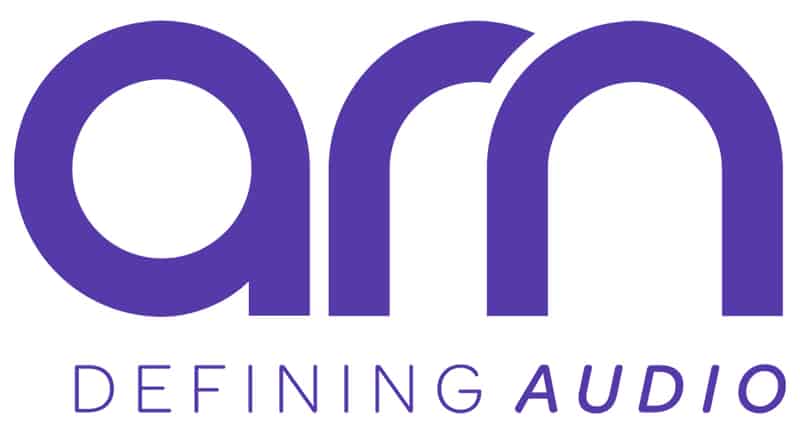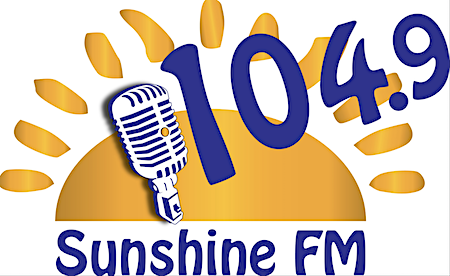Radio reacts to Facebook’s war on Australian news and content

The local Australian radio industry has found itself caught up in the fallout from Facebook’s move to stop local news outlets and consumers from sharing news stories on the platform.
The dramatic move from the US-owned Facebook comes as the digital giants continue to posture in response to Federal Government intervention. The Morrison Government has introduced legislation which could force Facebook into mandatory arbitration with news outlets, resulting in them having to pay for the news content which is shared and consumed on its platform.
Yet, the move by Facebook this week didn’t just hit publishers such as Nine and News Corp. Various lifestyle outlets, music festivals such as Splendour in the Grass, and even official Government health pages were temporarily wiped as the aggressive move took shape.
Radio outlets have also been hit, but in an inconsistent manner.
The KIIS 1065 Facebook page, for example, has been wiped, leaving its 687,652 followers with no content to view, however its page for Kyle & Jackie O, with 1.7 million followers, remains active.
2DayFM Breakfast, however, has not been afforded the same freedom as Kyle & Jackie O, with its 78,364 followers also finding a blank Facebook page. 2DayFM’s 517,578 followers are met with a similarly blank page.
2GB’s Facebook has also been wiped as has Fox FM, 3AW and Nova 100 in Melbourne.
Triple M Perth has survived the purge, but 96FM was not so lucky.
The social media giant’s managing director for Australia and New Zealand, Will Easton, said the action was necessary because the proposed law “fundamentally misunderstands the relationship between our platform and publishers who use it to share news content”.
“It has left us with a stark choice: attempt to comply with a law that ignores the realities of this relationship, or stop allowing news content on our services in Australia. With a heavy heart, we are choosing the latter,” he said.
He said publishers willingly engaged with Facebook and reaped its benefits, including being able to sell more subscriptions, grow their audiences and increase advertising revenue.
“In fact, and as we have made clear to the Australian Government for many months, the value exchange between Facebook and publishers runs in favour of the publishers — which is the reverse of what the legislation would require the arbitrator to assume,” he said, arguing last year the platform generated approximately 5.1 billion free referrals to Australian publishers worth an estimated $407 million.
Radio industry reacts
Joan Warner, CEO of Commercial Radio Australia (CRA), said the move by Facebook is deeply concerning and erodes the value of Facebook for all Australians. She has requested that the organisation reinstates the pages.
“Radio stations provide not only news through these pages, but valuable local information, advice, entertainment, emergency alerts and support for many community organisations and charitable events. For instance, some of our broadcasters are in areas impacted by extreme weather events, such as the recent bushfires in Western Australia and tropical cyclone off Far North Queensland, and their Facebook pages are a critical tool in disseminating essential information.
“Facebook’s approach to blocking content is inconsistent. We believe many stations have been inadvertently impacted, as they are music and entertainment stations that do not have a primary news sharing focus, but use their pages to create videos and other content designed to complement the radio listening experience.
“Commercial Radio Australia has contacted Facebook directly to seek clarity on their approach and to request that these pages be reinstated.”
Southern Cross Austereo’s (SCA) CEO, Grant Blackley, echoed Warner’s sentiment that Australian consumers will be worse off due to Facebook’s decision.
“SCA was surprised at the announcement and general lack of engagement. We expect Facebook and their users will be poorer given this outcome.
“Moving forward we expect that Facebook will continue to encourage publishers like ourselves to entertain audiences through their platform with premium video and audio assets.
“Radio engages audiences at scale every day – not just through Facebook but through its other platforms especially Instagram, which at this time seems to be unaffected. We look forward to understanding the rules of engagement moving forward.”
And ARN’s CEO, Ciaran Davis, said the move would likely backfire for Facebook.
“ARN is not beholden to referrals from Facebook because our audiences are loyal to our local talent and our live content which we make available across many platforms. We’ve seen this evidenced today in zero decline in traffic to our digital audio platform iHeartRadio.
“While Facebook may think they’ve made their point, I daresay it won’t play out in their favour as publishers will quickly diversify their traffic sources, shift their commercial spend and ultimately take back control of their audiences while at the same time, strengthening their support for further regulation of global tech platforms.
“Australian audiences want access to locally generated content and today’s action highlights the dangers of an unregulated market.”
Nine, meanwhile, has been actively involved in the campaign to have the digital giants reigned in and to force them to pay for local content.
A spokesperson for the organisation, which includes traditional media outlets such as The Sydney Morning Herald and The Age as well as radio stations such as 2GB, 3AW and 6PR, said nobody wins in this situation.
“It is unfortunate Facebook have taken this position and it will indeed inhibit us from sharing our quality news and information with Australians. Nobody benefits from this decision as Facebook will now be a platform for misinformation to rapidly spread without balance. This action proves again their monopoly position and unreasonable behaviour.
“But today’s statement does not mean Facebook will not have to abide by the Federal Government’s proposed code. Value has already been transferred and Facebook has benefited from our content for many years. We should be able to access their monopoly platform and have the right to monetise our content as a result.
“We have been negotiating with Facebook in good faith and we remain willing to do a deal with them that provides a mutually beneficial outcome and ensures quality information is available to all Australians on their platform.”
NOVA Entertainment is taking a wait-and-see approach and declined to comment until the implications of the move become clearer.




I can’t believe you didn’t include WSFM’s hilarious approach!
There was this really cute moment yesterday where a talk radio CD posted about radio always being there with the news, as if yesterday was some kind of victory, that people woke up, couldn’t find news on Facebook and immediately switched on the radio.
As if that was it, the internet never took hold, and it was 1999 and Rick Dees was doing the weekly top 40.
This attitude is exactly how Facebook and Google CONTINUE to hold power.
Radio and TV people are still convinced they’ve got some gold tier of content distribution, while their numbers continue to sink.
Its unlikely to be good news for any of the terrestrial outlets except maybe news who will see some audience move back , but just some. Digital media platforms are poised to move to whole new level of user engagement and there just wont be as much sharing. Local content will hold some sway, but the sophistication of these digital platforms should not be underestimated, particularly when provoked. The stakes are just too high !
Look out kids, the boomer executives are talking about social media.
I think it’s funny traditional media executives believe it’s their birth right to build an audience for free and monetise it. Then, when they can’t quite work out how to make enough from it, charge the people who provided them access to the huge free audience for the pleasure of their existence and their not so great journalism.